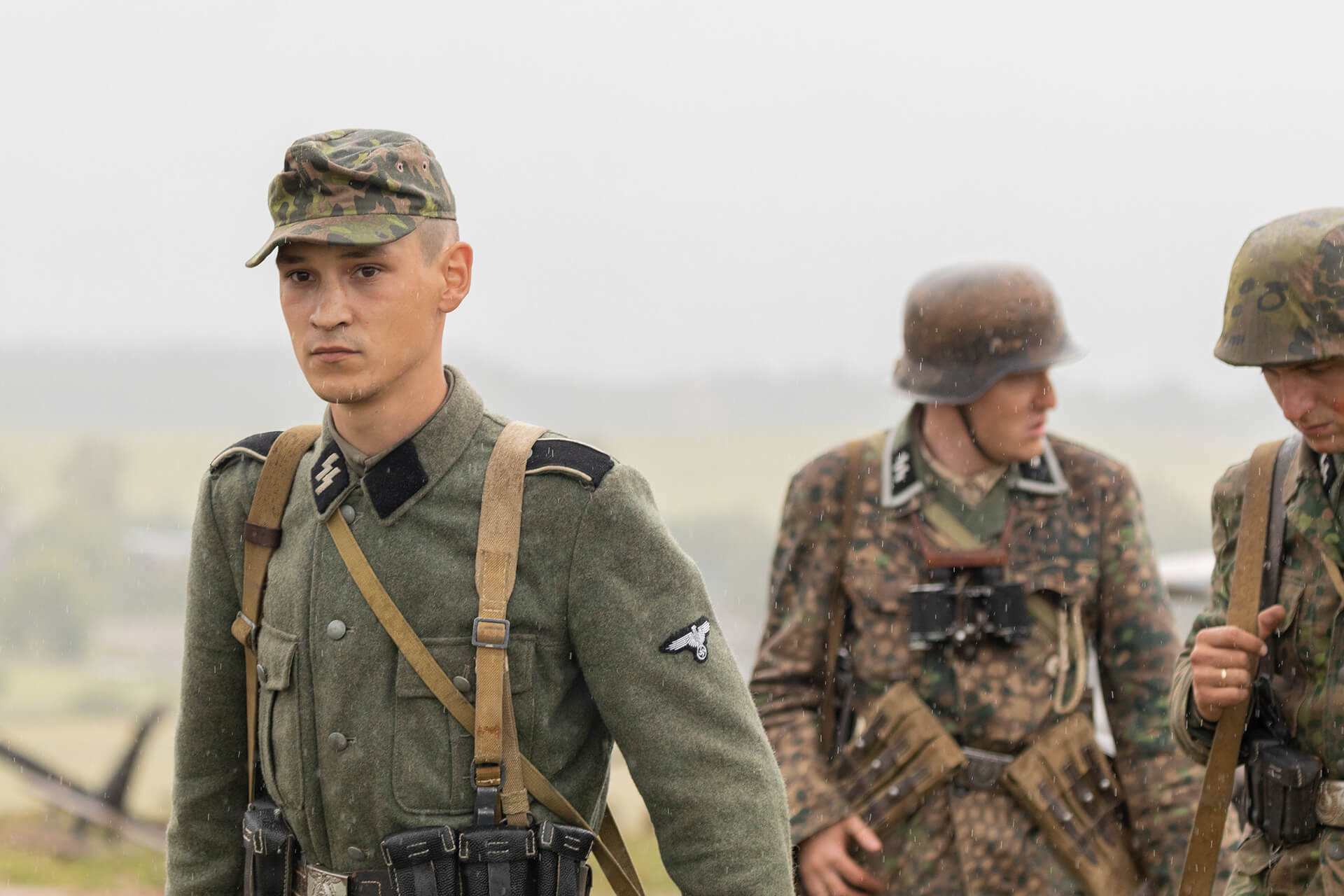Can the Nazi regime become a soft power asset for Germany?
It’s a tricky question since the Third Reich is probably the highest expression of hard power in human history. Hard power consists in financial or social coercion and, above all, military power. Soft power, on the other hand, is usually felt through diplomacy, science, sports and, most effectively, arts and entertainment.
Hollywood turned the Nazi regime into a soft power asset for the United States throughout movie history, showing the moral, intellectual and martial superiority of the Allies in films like Casablanca (1942), The Best Years of Our Lives (1946), From Here to Eternity (1953), Patton (1970), Schindler’s List (1993) and Saving Private Ryan (1998). All of these got took the most important Academy Awards; the Oscars, indeed, are the final coronation of Hollywood’s soft power.
The UK also used the victory against the Nazis as a soft power asset in films like in The Bridge on the River Kwai (1957) and The English Patient (1996). Russia, likewise, has its World War II films, such as Only “Old Men” Are Going Into Battle (1973), They Fought for Their Country (1975) and Stalingrad (2013). Coincidently or not, since Russia became the West’s political enemy during the Cold War, none of them got any significant awards in major festivals.
Turning other nation’s hard power into our own soft power is an old strategy of Hollywood, sometimes with direct help from the seat of hard power, Washington itself—like when US President Franklin D. Roosevelt ordered movies to be made to engage citizens in the American cause, like Frank Capra’s Why We Fight (1942) and Walt Disney’s creation of characters like Zé Carioca for movies like Saludos Amigos (1942) as a conscious effort to keep Latin America close to the US during the war and supplying foods and commodities for the allied soldiers.
All Quiet on the Western Front
This year, however, a German movie made Oscar history and won four awards, including Best Picture, by showing World War I from Germany’s point of view. All Quiet on the Western Front (2022), Edward Berger’s adaptation of the 1929 novel by Erich Maria Remarque, is a war spectacle that trails Paul Bäumer, played by Felix Kammerer.
Bäumer is a frightened soldier during most of its 150 minutes, as Germany and France negotiate a ceasefire. Ceaseless scenes of brutality, shot in a widened scope, and powerful images closely follow Bäumer, deepening his human character, an essential cinematic tool to keep the viewers intimate and close to the protagonist, even if not because of his cause. The adaptation’s greatest quality lies exactly here: its ability to avoid stereotyping, something that Hollywood done has many times with Nazi Germans, Viet Cong, Soviets and so on. In contrast, Paul Bäumer is shown with his fears, desires, human mercy and naivety, through which we instantly connect with him.
World War I, however, is not a big “cinematic taboo” for Germans like World War II—the greatest human tragedy of modern times or maybe of all times, responsible for the deaths of 35 to 60 million people or even more. With the help of Hollywood’s soft power, the Third Reich became solidly portrayed as the greatest enemy of human history. So, again, the question: can World War II, the Nazi regime, become a soft power asset through cinema for Germany?
Are we ready for a new look at WWII?
It’s probably impossible to imagine modern democratic societies accepting any German movies that simply show a sympathetic German point of view about World War II, no matter how good the movie is. It is hard to believe that any film could repeat the feat of Leni Riefenstahl’s Triumph of the Will (1935), which is considered one of the greatest documentaries ever made, studied in all film schools around the world because of the director’s use of techniques such as aerial photography, long-focus lenses, moving cameras, distorted perspective and music. Even despite its fame, none of the several awards the film won in Germany, France and Italy are today listed by major websites like IMDb, except for “Best Foreign Documentary” in the Venice Film Festival held during Mussolini’s dictatorship.
German filmmakers and production companies have long circumvented this taboo with the same strategy Berger used in All Quiet on the Western Front: a script that relies on character density and preferably puts the conflict as a half-distant background. The Tin Drum (1979), directed by Volker Schlöndorff, accompanies Oskar Matzerath (David Bennent), who falls down the stairs at the age of three and stops growing up. It won the Academy Award for Best Foreign Film by leaving the horror of the war distant and caricatural. Two years later, the German director Wolfgang Petersen got six Academy Awards nominations for his Das Boot (1981), an achievement only made possible because the movie portrays the horrors of the Nazi regime inside the claustrophobic submarine in the same way Hollywood had portrayed it for decades.
Recently, though, German movies that portray the Nazi regime with a closer and less stereotypical look from Germans themselves are getting recognition from relevant festivals around the world. Before the Fall (2004) directed by Dennis Gansel, takes a close look at the war while showing the boxing abilities of Friedrich Weimer (Max Riemelt), whose athletic skills take him to an elite Nazi high school in 1942. He applies, against his father’s wishes, to pursue a better future.
More recently, Robert Schwentke’s The Captain (2017) follows the last days of World War II with a young German soldier, fighting for survival, who finds a Nazi captain uniform and assumes his identity. To escape the Nazis’ monstrousness, he becomes, himself, a monster. The movie won 23 international awards in festivals like the European Film Awards and the San Sebastián International Film Festival.
The Academy Awards, considered the most important film festival in the world, still have not shared their soft power with German filmmakers who portray the Nazi regime with a less stereotypical look. But the success of All Quiet on the Western Front in the last iteration of the Academy Awards shows that even the most horrifying episodes of the human race may become a soft power asset to a nation that carried it out if filmmakers manage to depict human goodness, mercy and hope among evil and chaos.
[Anton Schauble edited this piece.]
The views expressed in this article are the author’s own and do not necessarily reflect Fair Observer’s editorial policy.
Support Fair Observer
We rely on your support for our independence, diversity and quality.
For more than 10 years, Fair Observer has been free, fair and independent. No billionaire owns us, no advertisers control us. We are a reader-supported nonprofit. Unlike many other publications, we keep our content free for readers regardless of where they live or whether they can afford to pay. We have no paywalls and no ads.
In the post-truth era of fake news, echo chambers and filter bubbles, we publish a plurality of perspectives from around the world. Anyone can publish with us, but everyone goes through a rigorous editorial process. So, you get fact-checked, well-reasoned content instead of noise.
We publish 2,500+ voices from 90+ countries. We also conduct education and training programs
on subjects ranging from digital media and journalism to writing and critical thinking. This
doesn’t come cheap. Servers, editors, trainers and web developers cost
money.
Please consider supporting us on a regular basis as a recurring donor or a
sustaining member.
Will you support FO’s journalism?
We rely on your support for our independence, diversity and quality.







Comment